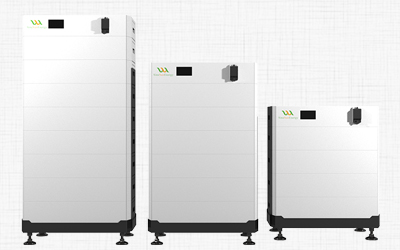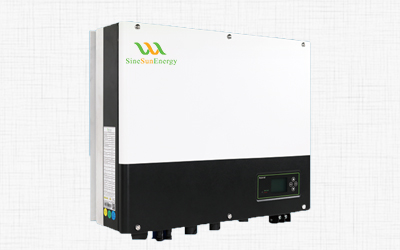 2023.03.22
2023.03.22 Shanghai SineSunEnergy
Shanghai SineSunEnergy 907
907If you are researching a solar battery there’s one major question that you likely have: how much of your house can you power with a typical solar battery, and how long can you provide power to your home? As with most things, the short answer is an ever unsatisfying: it depends! The longer answer is a complicated one, so we’re here to help.
We’ve split this article into two separate questions–how much and for how long–since both questions are important as you decide which battery to install, but the answers rely on different factors.
Key takeaways
The amount of your house you can backup with a battery will depend on the appliances and circuits you want to backup and the power rating of your battery (instantaneous and continuous).
Factors that impact how long you can power your home with your battery include: usable storage capacity of your battery, which appliances you’re using and for how long, and whether your battery is paired with solar.
Load management devices can prolong your battery’s stored energy capacity.
Solar-plus-storage shoppers should use the EnergySage Marketplace to compare quotes from pre-vetted installers.
Factors that influence how much of your house a battery can power
When talking about how much of your home you can power with a battery, the two main factors to consider are: how much power do you need, and how much power does your battery supply, with power measured in kilowatts (kW) or amps (A).
1. Appliances/circuits you want to back up
To determine how much power you need, you need to know which appliances (or circuits) you plan to back up. Many homes in the US have a 200 amp electrical panel. If you wanted to backup the whole electrical panel, providing power to every circuit at the same time, you would need a lot of power. As you’ll see in the next section, though, batteries typically provide far less power than that.
Thankfully, it’s unlikely that you’ll be running every single appliance in your home on any given day, and you’re even less likely to be running all of them at once. Less excitingly, that means you (or your installer) will need to calculate the power usage of different appliances in your home, or of different circuits on your electrical panel (most circuits can hold a max of 15 to 20 amps).
Batteries provide power ratings in kW and current ratings in amps, so if you know the power draw or current requirements of different appliances, you’re in luck! If you don’t happen to know those values off hand, here are two resources to start with: first, our explainer on what even is electrical load, and, second, the US Department of Energy’s appliance load calculator. By finding the wattage of each individual appliance, you can calculate the power requirements for backing up your home: 200 watts for a refrigerator, 20 watts per light bulb, 25 watts for a phone charger, 300 watts for a TV, and so on.
2. Power rating of your battery (instantaneous and continuous)
Once you know how much power you need to back up part or all of your home, you can begin to size an energy storage system appropriately. There are two key power metrics to look at: instantaneous power and continuous power. Instantaneous power determines if you can provide an extra surge of power to appliances that need it. For instance, a well pump or sump pump might require a lot of power when you first turn it on, but then it’s power requirements will drop for the rest of the time you’re running it. If you have an appliance that has a surge requirement for power when you first turn it on, be sure to look carefully at this spec.
Continuous power represents the amount of power (in kilowatts) that your battery can provide steadily. This is the metric to look at to determine how many different appliances and circuits you can power at once for hours at a time. Most batteries have a continuous power rating of between 5 and 8 kilowatts, meaning they could power several circuits or a handful of appliances concurrently.
Factors that influence how long you can power your home with a battery
1. Usable storage capacity of your battery
2. Which appliances you’re using and for how long
3. Whether your battery is paired with solar
Get storage quotes on Sinesunenergy today!
If you’re interested in a solar-plus-storage system for backup power, the best place to start is with custom quotes from local solar & storage companies. Look no further than EnergySage! You can contact us by leaving us an email address, your physical address, and an estimate of your monthly electricity usage, and we’ll go get you custom solar & storage quotes from up to seven local installers. See how much you can save with solar–and back up with storage–today!





 Residential ESS
Residential ESS


 Commercial ESS
Commercial ESS


 Traction Battery
Traction Battery


 Telecom Base ESS
Telecom Base ESS


 Portable Power Supply
Portable Power Supply


 Cell Solutions
Cell Solutions


 Inverter
Inverter


 Residential ESS
Residential ESS






 Return
Return












